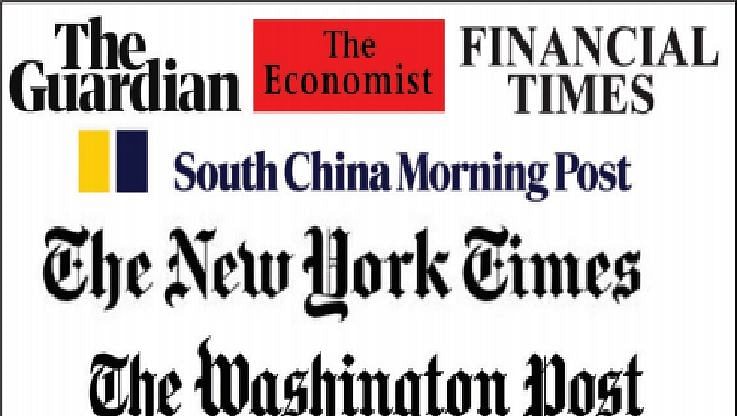Implications for the world
India’s plight has worldwide implications. There is still a tendency in the West to treat the pandemic as a series of national crises in which countries compete to see who can deal with the virus better. But this is an interconnected global crisis. As Tedros Adhanom Ghebreyesus, the head of the World Health Organization puts it, Covid-19 is an international fire and, “if you hose only one part of it, the rest will keep burning”. Eventually, the fire is likely to spread once again, reigniting in places where it was thought to be extinguished. There is already cause for concern that the UK was too slow to introduce stringent quarantine measures for passengers arriving from India. That is particularly dangerous, given the emergence of new variants of the virus in India that may be more transmissible and vaccine resistant.
Getting medical help to India is now both a humanitarian and a pragmatic necessity for the outside world, which is beginning to respond. For the US, it may also be a geopolitical necessity, given that America regards India as a crucial ally in its growing rivalry with China. A recent article in The Times proclaimed that “Britain could feel like paradise this summer.” The lesson of India is to guard against premature celebration or hubris. -Financial Times, London
Avoidable, tragic and a threat
India’s devastating new wave of the pandemic was as avoidable as it is tragic, brought on by relaxing restrictions too soon. It should remind us once again that pandemic danger in one place is a danger to all. The explosion in new cases has been accompanied by the emergence of yet another variant of the coronavirus, B.1.617, that may be more infectious.
Any transmission or infection anywhere is a spin of the roulette wheel for a possible new, more dangerous variant. Most such mutations are insignificant and disappear. But as the past few months have demonstrated with the variant first detected in Britain, a significant change in the genome can lead to rapid spread and more severe disease. India’s out-of-control catastrophe — by its sheer scale — is a potential pressure cooker for still more variants. The one that is already taking off, B.1.617, includes two mutations seen separately in earlier variants but never together in the same one. The mutations are in key parts of the virus genetic code forming the spike protein and the mechanism it uses to infect a human cell. This variant appears to be one factor powering the massive increase in daily new cases. It is not yet clear how well vaccines protect against it, or whether it will spread beyond India. Can India, population 1.3 billion, be isolated? Not easily. Almost certainly, vaccines will have to be tweaked to adapt. -Washington Post
Hubris and a catastrophe
A mere three months ago India was starting to feel good about itself. The wave of covid-19 that crested in the autumn seemed to be ebbing away. True, the virus had stolen lives and battered livelihoods, but now schools were reopening, friends were getting together and a looming season of state elections promised a return to normal politics. Best of all for many in a cricket-mad country, India’s team had just roared back from a rocky start to snatch victory over a fierce rival, Australia.
Addressing university students in late January, Narendra Modi, the prime minister, drew parallels between cricketing glory and his government’s war on covid, noting that both situations presented challenges that required a positive mindset. “With made-in-India solutions, we controlled the spread of the virus and improved our health infrastructure,” he boasted. “Our vaccine research and production capacity have given a shield not just to India but to many other countries in the world.” In February Mr Modi’s Bharatiya Janata Party (BJP) passed a resolution hailing him as a visionary who had “defeated” covid-19… -The Economist
No time for politics
Not so long ago, India was sending coronavirus vaccines to other countries. Prime Minister Narendra Modi dubbed India the “pharmacy to the world”.
His administration said the pandemic was at its final stages in India. Now, in a second wave of contagion, the world’s second-biggest population is at the epicentre. It is India that now desperately needs aid such as oxygen, vaccines and basic medical supplies. China has led the response – an offer that met some resistance in India, but this is no time for politicisation. The crisis is a horrific example of the dangers of relaxing anti-contagion measures too soon. It is not as if New Delhi had any excuse to have been taken by surprise. Simple observation of second waves of contagion in other parts of the world should have alerted it to the need to stockpile medicines and prepare to confront a new surge.
People tend to assume that once their country has a vaccine and a mass inoculation programme Covid-19 is going to go away. But unless vaccine coverage is swift and comprehensive, it is in danger of being overwhelmed by the virus. India’s vaccination centres are running out of doses. And if countries lagging behind do not catch up, no one is safe unless everyone is vaccinated or borders are closed. Given its population size, India is a vulnerable example. It offers an ideal environment for the virus to jump from host to host and mutate. As a result, it has added to new strains of the virus causing global concern. India is also paying the price for underinvestment in public health.
































